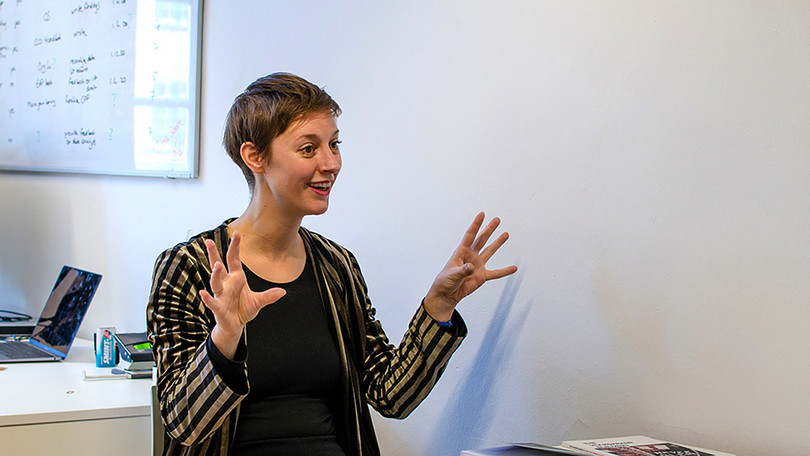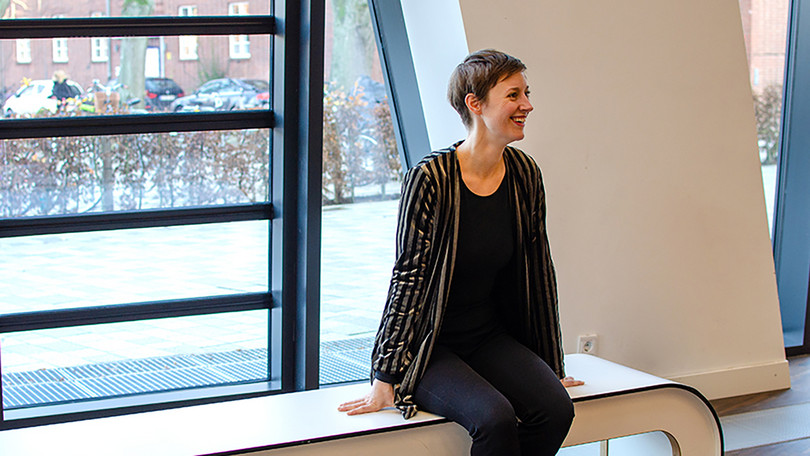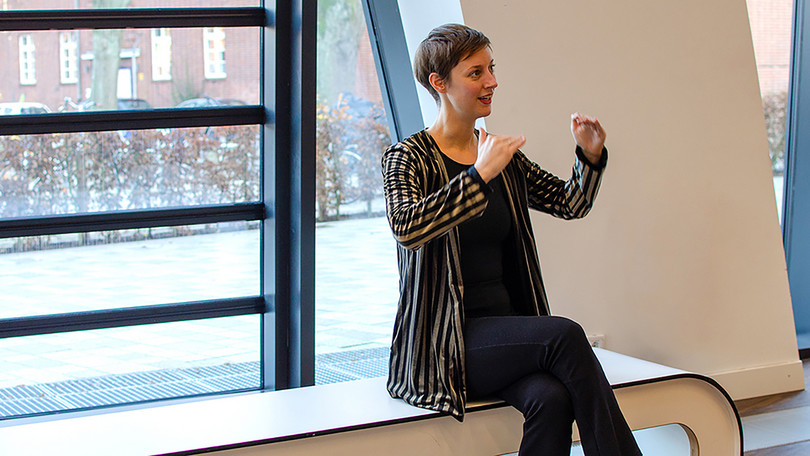New at the Leuphana: Prof. Dr. Boukje Cnossen – How Spaces Influence Creative People
2020-01-27 Artists are rarely employed on a permanent basis – and they don’t go to the office every morning either. Many work independently – and from home, in collectives, or in other, more flexible forms of organisation. Prof. Dr. Boukje Cnossen, Assistant Professor of Business Administration specialising on Cultural Entrepreneurship, researches how space affects the artistic and business success of creative people.
With its large dark glass windows and the grey concrete, the façade looks dreary. For a long time, the box-shaped building was adorned with the words “De Volkskrant” in large lettering, having become the head office of the national newspaper in the mid-1960s. The publishing house moved out in the early 2000s, after which the building fell into disrepair and was to due be demolished. The concrete block is still standing, however. “De Volkshotel” is now legible on its roof, with the name recalling its former function. Today, the hotel’s resident artists are allowing the guests to gain an insight into their work. In return for giving the hotel a sense of creative flair, their rent is below the market average.
Boukje Cnossen started her research on the building when working at the University of Amsterdam, and has been investigating the influence of space on the creative practice and economic conditions of the artists ever since. She currently holds the Professorship for Cultural Entrepreneurship at the Institute for Management and Organisation at Leuphana University. After completing her Bachelor degree in Religious Studies at the University of Amsterdam, Boukje Cnossen initially worked as an art critic and journalist. She then moved to London to study Humanities and Cultural Studies at the London Consortium in a joint programme hosted by Birkbeck, the Architectural Association, the Institute of Contemporary Arts, the Science Museum and the Tate Gallery. “It was there that I became aware of the connection between urban space and art,” says Cnossen. She gained her MRes (Master of Research) and then moved back to the Netherlands. After working for one year as a Junior Researcher at the University of Amsterdam, where she completed her aforementioned research on the (present-day) Volkshotel, she finally gained her Doctorate at Tilburg School of Economics and Management at the University of Tilburg (NL).
During her doctoral studies, she completed her research in a former hospital that had been converted into a cultural centre and a shared workspace for artists. “One of the artists began drawing little pictures of a chicken on the walls of the building. This quickly became the hallmark of the building, to the point at which products showing the chicken were being made and sold. Experimenting with space, in this case by decorating the walls with the pictures, helped to create a community,” explains Boukje Cnossen. With her research, the academic aims to shed light on the profound mechanisms with which self-employed people in the creative and cultural industries are confronted.



